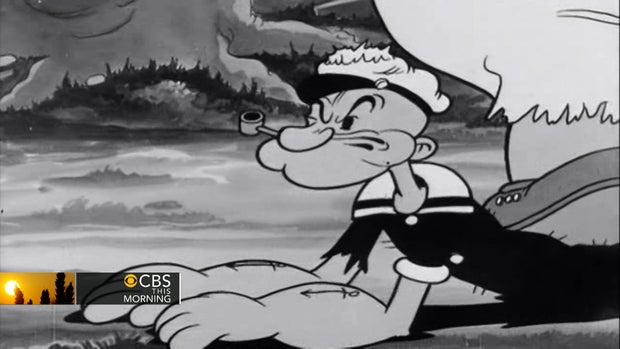CBS News
Dua Lipa’s all-night party at Glastonbury 2024

Watch CBS News
Be the first to know
Get browser notifications for breaking news, live events, and exclusive reporting.
CBS News
Accused “invisible” cocaine trafficker from U.K. captured in Colombia after years on the run

Colombia arrested a suspected British drug trafficker they described as “invisible” due to his low-key lifestyle that allowed him to remain anonymous while operating as a cartel’s coordinator of cocaine trafficking from the South American country to the United Kingdom, authorities said Friday.
Christopher Neil was arrested Thursday in the northwestern city of Medellin in an operation by local law enforcement and Interpol. They accused Neil of working for Colombia’s Clan del Golfo (Gulf Clan) cartel.
Colombian authorities have coined the term “invisible drug traffickers” to describe those who operate discreetly, maintaining ordinary, low-profile lives that contrast with the eccentricity of the country’s drug lords in the 1980s and 1990s.
Colombia’s National Police said Neil had lived in Colombia since December 2018. The agency said he is wanted in the United Kingdom, where he faces trafficking and money laundering accusations.
Police said they followed a car that moved through Medellin before arresting Neil. They said a multi-million-dollar transaction between the United Kingdom and Colombia played a key role in catching the suspect.
/ AP
It was not immediately clear Friday if Neil had an attorney who could comment on his behalf.
The arrest comes just weeks after Italian police announced the arrest in Colombia of a dangerous fugitive accused of being the intermediary between the Latin American country’s drug cartels and the Naples mafia. In announcing his arrest, Italian police released a photo of Belvedere visiting the grave of Pablo Escobar, the founder and boss of the Medellin cartel, who was killed by police in 1993.
Earlier this year, a Norwegian man dubbed “The Profesor” who is accused of leading a crime ring that trafficked cocaine from South America to Europe on sailboats was captured in Colombia. Police said Pazooki Farhad, like Neil, also had criminal links with the Gulf Clan.
In 2022, the Gulf Clan shut down dozens of towns in northern Colombia for four days in reaction to its leader being extradited to the U.S. for trial. It warned that anyone who disobeyed the stay-at-home order risked being shot or having their vehicle burned.
CBS News
Early Popeye and “A Farewell to Arms” among famous entities entering public domain

Popeye can punch without permission and Tintin can roam freely starting in 2025. The two classic comic characters who first appeared in 1929 are among the intellectual properties becoming public domain in the United States on Jan. 1. That means they can be used and repurposed without permission or payment to copyright holders.
This year’s crop of newly public artistic creations lacks the landmark vibes of last year’s entrance of into the public domain of Mickey Mouse. But they include a deep well of canonical works whose 95-year copyright maximums will expire. And the Disney icon’s public domain presence expands.
“It’s a trove! There are a dozen new Mickey cartoons – he speaks for the first time and dons the familiar white gloves,” said Jennifer Jenkins, director of Duke’s Center for the Study of the Public Domain. “There are masterpieces from Faulkner and Hemingway, the first sound films from Alfred Hitchcock, Cecil B. DeMille, and John Ford, and amazing music from Fats Waller, Cole Porter, and George Gershwin. Pretty exciting!”
A closer look at this year’s crop:
Popeye the Sailor, with his bulging forearms, mealy-mouthed speech, and propensity for fistfights, was created by E.C. Segar and made his first appearance in the newspaper strip “Thimble Theater” in 1929, speaking his first words, “‘Ja think I’m a cowboy?” when asked if he was a sailor. What was supposed to be a one-off appearance became permanent, and the strip would be renamed “Popeye.”
But as with Mickey Mouse last year and Winnie the Pooh in 2022, only the earliest version is free for reuse. The spinach that gave the sailor his super-strength wasn’t there from the start and is the kind of character element that could spawn legal disputes. And the animated shorts featuring his distinctive mumbly voice didn’t begin until 1933 and remain under copyright. As does director Robert Altman’s 1980 film starring Robin Williams as Popeye and Shelley Duvall as his oft-fought-over sweetheart Olive Oyl.
That movie was tepidly received initially. So was director Steven Spielberg’s “Adventures of Tintin” in 2011. But the comics about the boy reporter that inspired it, the creation of Belgian artist Hergé, were among the most popular in Europe for much of the 20th century.
The simply drawn teen with dots for eyes and bangs like an ocean wave first appeared in a supplement to the Belgian newspaper Le Vingtième Siècle, and became a weekly feature.
The comic also first appeared in the U.S. in 1929. Its signature bright colors – including Tintin’s red hair – didn’t appear until years later, and could, like Popeye’s spinach, be the subject of legal disputes.
And in much of the world, Tintin won’t become public property until 70 years after the 1983 death of his creator.
The books becoming public this year read like the syllabus for an American literature seminar.
“The Sound and the Fury,” arguably William Faulkner’s quintessential novel with its modernist stream-of-consciousness style, was a sensation after its publication despite being famously difficult for readers. It uses multiple non-linear narratives to tell the story of a prominent family’s ruin in the author’s native Mississippi, and would help lead to Faulkner’s Nobel Prize.
And Ernest Hemingway’s “A Farewell to Arms” joins his earlier “The Sun Also Rises” in the public domain. The partly autobiographical story of an ambulance driver in Italy during the First World War cemented Hemingway’s status in the American literary canon. It has been frequently adapted for film, TV and radio, which can now be done without permission.
John Steinbeck’s first novel, “A Cup of Gold,” from 1929, will also enter the public domain.
The British novelist Virginia Woolf’s “A Room of One’s Own,” an extended essay that would become a landmark in feminism from the modernist literary luminary, is also on the list. Her novel “Mrs. Dalloway” is already in the U.S. public domain.
While a host of truly major movies will become public in the coming decade, for now early works by major figures from the not-always-stellar early sound era will have to suffice.
A decade before he would move to Hollywood and make films like “Psycho,” and “Vertigo,” Alfred Hitchcock made “Blackmail” in Britain. The film was begun as a silent but shifted to sound during production, resulting in two different versions, one of them the U.K.’s – and Hitchcock’s – first sound film.
John Ford, whose later Westerns would put him among film’s most vaunted directors, also made his first foray into sound with 1929’s “The Black Watch,” an adventure epic that includes Ford’s future chief collaborator John Wayne as a young extra.
Cecil B. DeMille, already a Hollywood bigwig through silents, made his first talkie with the melodrama “Dynamite.”
Groucho, Harpo and the other Marx Brothers had their first starring movie roles in 1929’s “The Cocoanuts,” a forerunner to future classics like “Animal Crackers” and “Duck Soup.”
“The Broadway Melody,” the first sound film and the second film ever to win the Oscar for best picture – known as “outstanding production” at the time – will also become public, though it’s often ranked among the worst of best picture winners.
And after “Steamboat Willie” made the earliest Mickey Mouse public, a dozen more of his animations will get the same status, including “The Karnival Kid,” where he spoke for the first time.
Songs from the last year of the Roaring Twenties are also about to become public property.
Cole Porter’s compositions “What Is This Thing Called Love?” and “Tiptoe Through the Tulips” are among the highlights, as is the jazz classic “Ain’t Misbehavin’, written by Fats Waller and Harry Brooks.
“Singin’ in the Rain,” which would later forever be associated with the 1952 Gene Kelly film, made its debut in the 1929 movie “The Hollywood Revue” and will now be public domain.
Different laws regulate sound recordings, and those newly in the public domain date to 1924. They include a recording of “Nobody Knows the Trouble I’ve Seen” from future star and civil rights icon Marian Anderson, and “Rhapsody in Blue” performed by its composer, George Gershwin.
CBS News
American among 7 tourists hospitalized after drinking cocktails at 5-star Fiji resort

Seven foreign tourists, including an American, were hospitalized in Fiji after drinking cocktails at a resort bar, Fijian authorities said on Monday, just weeks after six tourists died of suspected alcohol poisoning in a separate incident in Laos.
All seven were taken to hospital on Saturday night suffering from “nausea, vomiting and neurological symptoms,” according to Fiji’s health ministry.
They fell ill after drinking pina colada cocktails prepared at a bar in the five-star Warwick Fiji resort on the Coral Coast, about 45 miles west of the capital Suva, officials said.
A health ministry spokesperson said the seven guests, aged from 18 to 56, included four Australians, one American and two others whose nationalities were not given.
One of the patients had been discharged Sunday from the Sigatoka Hospital near the hotel, said the tourism minister, Viliame Gavoka.
The other six were transferred to the larger Lautoka Hospital on the island’s west coast, he said, with two of them released earlier Monday and another two set to leave later in the day.
LEON LORDLEON LORD/AFP via Getty Images
The two patients remaining in Lautoka Hospital were in a “stable condition” in intensive care, he told a news conference.
David Sandoe, an Australian man who said his daughter and granddaughter were hospitalized, told Sky News Australia that his relatives had been released from the hospital and were due to fly home on Monday night.
Fiji’s health ministry and police force were investigating the cause, Gavoka said, adding that results from “critical” toxicology tests normally take three or four days.
“Everyone is in a state of disbelief that this has happened,” he said.
Asked whether the illness might be related to methanol poisoning, Gavoka said that was “something that we don’t believe is possible in Fiji.”
While declining to speculate about the cause, he said it was a “very isolated incident.”
Fijian tourism, which attracts close to a million people each year, was “typically very safe,” he said.
The minister said he did not believe it was the result of any deliberate action.
The hotel bar involved was “very busy” on the evening, he added, but only seven people were sickened by the pina coladas, which were normally “pretty harmless”.
A spokesperson for the Warwick Fiji hotel said it was conducting an investigation and waiting for test results from the health authorities.
“At this moment, we do not have conclusive details, but we are committed to ensuring the safety and well-being of our guests,” the spokesperson said.
Australia’s foreign ministry said it was providing consular assistance to two families but declined further comment citing “privacy obligations”.
In a separate incident in Laos last month, two Danish citizens, an American, a Briton and two Australians died of suspected methanol poisoning following what local media said was a night out in the town of Vang Vieng. The victims include Briton Simone White, 28, two young Australians, Holly Bowles and her best friend Bianca Jones, and two young Danish women, Anne-Sofie Orkild Coyman and Freja Vennervald Sorensen, the BBC reported. Only one of the victims, 57-year-old U.S. citizen James Louis Hutson, was male.
Police detained the 34-year-old manager of the Nana Backpacker Hostel and seven other employees for interrogation.
The Associated Press contributed to this report.





